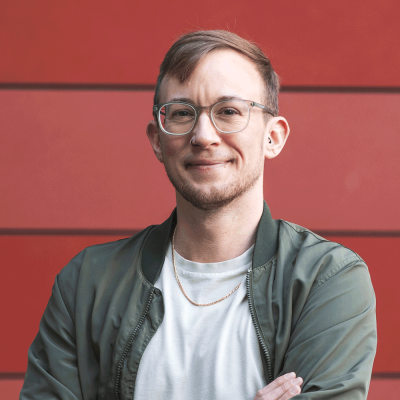Dr. Garde's work explores transgender history in early twentieth-century Germany, looking at archives, collective memory and their role in the construction of present trans identity and politics.

Research topic
Research Description
In the last decade, transgender history has become a significant battleground in contemporary “culture wars.” While trans antagonistic discourses question the notion that trans people have a past and claim trans identities to be a “trend” emblematic of an advancing "unravelling of civilization" and imminent cultural collapse, trans activists and their allies are turning towards history to document a longue durée of trans existence. A recent uptake of cultural productions dealing with transgender history is an extension of this longing for trans history.
Numerous films, TV shows, plays, public history projects, and museum exhibitions aim at making different aspects of past trans lives visible. Notably, a plethora of these cultural productions are focusing on transgender history in early-twentieth-century Germany. Together with the historical sources on which they – sometimes rather loosely – draw, they form a hybrid network of meaning-making about the transgender past. "Germany and the Trans Historical Imaginary" investigates these collective memories and their powerful role in constructing present trans identities, communities, and politics. The research project explores how German history and German archives inform the (re)writings of the transgender past and elaborates on the political, theoretical, and cultural stakes of these historical imaginations.
Why did you decide to pursue a postdoctoral fellowship at UBC? Did you consider other opportunities?
UBC is a top-ranked university and prime institution for German studies as well as Gender and Sexuality Studies and the Department of Central, Eastern, and Northern European Studies (CENES) offers exciting opportunities to further develop my research in conversation with other scholars whose work I admire.
The department’s commitment to decolonizing European studies as well as queer and trans studies makes it an especially attractive institution for my research project, and I am very excited to work under the expert supervision of Dr. Ervin Malakaj and his colleagues. I did consider other opportunities but ultimately was drawn to the prospect of working in an environment committed to advancing queer and trans-German studies specifically and supporting Two-Spirit, trans and non-binary scholars more broadly, which, unfortunately, in today’s world is not a given. Lastly, the fellowship allows me to live in the same city as my partner. The cherry on top, so to speak.
What advice do you have for new postdoctoral fellows?
As a new postdoctoral fellow about to start the fellowship, I have not a lot of advice to offer just yet. However, I would advise to build authentic relationships, collaborate rather than compete, follow your gut, and remember what brings you joy. I took some time after finishing my PhD to reflect on my priorities and where I situate myself vis-à-vis the pressures of the academic job market. When I doubted whether I belonged in academia, those were the things that allowed me to persevere and enabled me to decline opportunities that were not the right fit.
What do you like to do for fun?
I love being close to, on, or, even better, in the water and feel very fortunate that Vancouver has so many opportunities for doing just that. Other than that, I like hiking, going to concerts, and challenging myself by learning something new – right now it’s embroidery and how to bake sourdough bread (while trying not to subsume to German stereotypes). Currently, I am also volunteering for TRANSlations: Seattle Trans Film Festival and having lots of fun screening the film submissions.
What is the most enjoyable aspect of your postdoctoral fellowship?
A mixture of meeting new colleagues who work in similar fields and learning about their work as well as the freedom to develop ideas and immerse myself into a new project. I am excited to dream up new collaborations during my time at UBC.
What are the biggest challenges you have faced, or anticipate facing, in your career?
Probably finding my place within academia. Both, in the sense of figuring out where I belong in terms of departments and institutions as an interdisciplinary scholar whose research sometimes sits squarely to disciplinary boundaries. But also geographically speaking. I like to think of myself as someone who is deeply rooted in a place, so moving from Europe to Canada is quiet challenging, too. And finally, trusting that I am on the right path even if it is not always as visible or straightforward as it could be.
What does receiving this award mean for your career?
I feel extremely honoured to have received the Banting Postdoctoral Fellowship. It is a huge recognition for my work and motivates me to dive into this new project. I am hoping it will help me to obtain a tenure-track position afterwards.